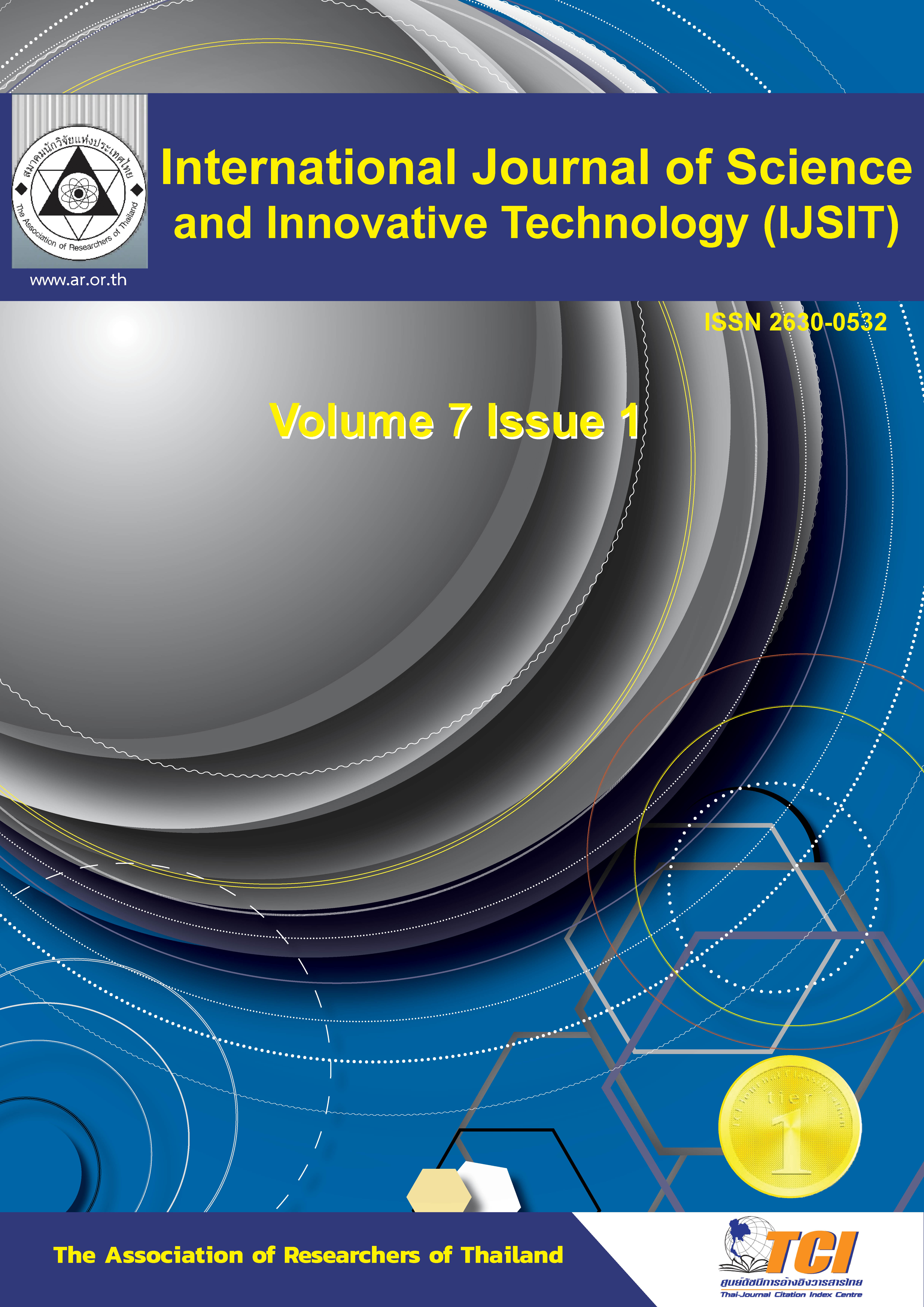Innovation on Optimizing and Propelling the Development of Police Comprehensive Investigative Skills
Main Article Content
Abstract
The efficacy of the police's investigative performance in delivering justice to the public is questionable. This study aimed to construct and disseminate an investigative skill model to police officers in the Nakhonpathom province region. The target population for this research consisted of ninety individuals: faculty members affiliated with the Faculty of Police Science, ten members of the investigation group Police Cadet Academy, and eighty third- and fourth-year police cadets. The findings were as follows: 1) The investigative skills model, which emphasized collaboration and integration among police investigators, forensic officers, and external agencies, was applicable and suitable for implementation in all cases. The evident advantages encompassed collaboration in their tasks and the acquisition of an identical set of case data; the implementation of CRIMES technology and its searching system facilitated the acquisition of information more quickly and easily; facilitated swift coordination or information transmission; and enabled efficient management of time and
travel expenses. Regarding the provision of public services, the model reduced the victim's repetition of case-specific details, which could have resulted in inaccurate or insufficient information or negatively impacted their emotional and mental well-being. The system additionally furnished up-to-date case statuses, notwithstanding the absence of the responsible officer. It was determined that the dissemination of the model improved public satisfaction and the officers' capacity to manage cases effectively. Nevertheless, personnel and the number of cases received might limit the application to all cases. An authentication criterion for editing and access was suggested.
Article Details

This work is licensed under a Creative Commons Attribution-NonCommercial-NoDerivatives 4.0 International License.
References
Kwanjai Yingcharoen, Supachai Supalaknaree, and Sirirat Chusakulkriang. (2020, January-
June). Understand and use forensic science in the investigation of specialized criminal cases by investigators. Social Science Journal, 9(1), 1-8.
Ratchadaphon Noikaew and Worathat Witchuwanich. (2020). Studying the importance of forensic evidence and its use in criminal cases: A case study of Provincial Police Stations in Satun Province. Academic Journal of Criminology and Forensic Science, 6(2), 167-180.
Watthanapong Wongyai. (2018). Legal measures to check the charges of the investigator
by the prosecutor. Journal of Humanities and Social Sciences, 9(2), 171-193.
Weeraphong Bunyopas and Supattra Phanwichit. (2015). Guidelines for developing a case
management system in police stations. Journal of Politics, Administration and Law, 7(2), 33 – 74.
Weeraphong Bunyopas, Supattra Phanwichit, and Niphon Panyalertkitti. (2013).
Knowledge management project about creating public participation in supporting crime prevention and suppression. Final report Office of the Science Promotion Commission Research and Innovation.
Seksan Kruakham. (2015). Crime, criminology and criminal justice. Nakhon Pathom: Royal
Police Cadet Academy.
Royal Thai Police Office. (2014). Training manual for police officers performing investigative
duties in the police station. Bangkok: Police Printing House.
Royal Thai Police Office. (2020). Royal Thai Police Order No. 558/2020 dated 30 October
regarding guidelines for prosecuting offenses related to the security of the Kingdom. and the Committee to Consider Offenses Related to National Security. https://freedom.ilaw.or.th/sites/default/files/ Police%20 Order%20558%202563.pdf
Annop Chubamrung and Unisa Lerttomonsakul. (2012). Crime and criminology. Bangkok:
Chulalongkorn University Press.
Kawai, D. & Samson, D. (2011, Jury). Development of criminal record information
system [Paper presentation], Nigeria Computer Society (NCS): 10th
International Conference, 25-29.
Reid, S.T. (1997). Crime and Criminology, 8th ed. New York: Brown & Benchmark
Publishers.


